It’s been an epic week for our budding #LocalDigital Collaboration Unit (LDCU). Wednesday saw the culmination of 6 months of workshopping and text drafting with hundreds of collaborators to launch a Local Digital Declaration.
It’s a common aspiration for local public services written by over 40 organisations, and one we hope everyone delivering these services can sign up to.
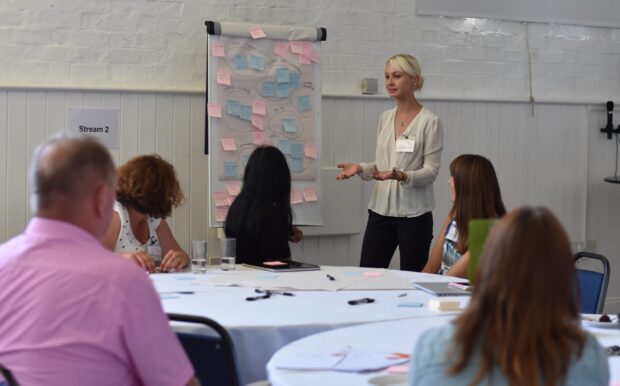
It’s a proud moment for those who’ve been trying to help councils collaborate on digital projects for years. But it’s also the start of a daunting new mission: to realise the Declaration ambition as quickly as possible.
Mission Declaration Delivery
I wrote about the problem we’re setting out to address in my last blog post. Basically, we want to create the conditions for councils to build wonderful, cost-effective, and life-improving local services quickly.
This means ‘fixing our digital plumbing’, developing and adopting common technical and design standards. We need these to join things up better and offer better, cheaper local public services. We also want to make it easier for local service teams to buy, design, build and iterate their services.
Our solution: LDCU as a wiki platform
Councils have hundreds of services. Many have over 100 IT contracts and licences. So, there’s no way our small team could or should make standards and guidance for everything.
Rather, we want make it easy for cohorts of problem-solvers all over the UK to solve common digital problems once. And we want to make it easy for everyone to learn about the work of these teams, to feed into their work, and adopt their standards or best practice when it’s ready. In other words, we want to create the conditions for the sector to wiki-solve its shared local public service problems.
In this blog post, I’ll share my early thoughts on what I mean by this and how we plan to do it.
What does it mean to wiki it?
‘Wikis’ came into existence at the turn of the 21st century, when developers started writing code collaboratively, building websites together from any browser, anywhere in the world. Wikipedia is a product of wiki code, and as we approach the 2020’s, our ability to share plans, ideas and burdens across huge numbers of people and diverse geographies has also expanded.
Lots of people have been wiki problem-solving for ages. In the UK, Local Government Association (LGA)-born Khub has been around for years helping many communities of practise to share ideas and work. More recently, an explosion of Slack channels, Github projects, shared Google-suite folders have been helping big groups to cut the bureaucracy of large-scale project management and work beyond the boundaries of their organisations.
We don’t want to replace and centralise any of these great communities. We want to create some ‘light touch’ navigation to help people find the communities they need. And we want to create a ‘how to’ toolkit to help those brave enough to do a common project to find collaborators and build something that has the best chance of becoming an open, common pattern.
Our website, localdigital.gov.uk, is under construction, but that will be the place to suggest and find guidance as it emerges.
Some principles to guide our wiki work
"On my desk in the Oval Office, I have a little sign that says: There is no limit to what a man can do or where he can go if he doesn't mind who gets the credit" - Ronald Reagan
1. Death to the ego
I read the above Regan quote a while back and it resonated powerfully with our collective mission in local. The challenge of changing how an entire sector delivers services is too big for a master architect to solve, and central control will only slow down the great work already underway in many places.
We need to create a bigger collective in which we create and learn together. This means sharing ideas, bouncing them off each other. It means tempering our desire to own things and be credited as inventors. This is no easy task when we’re all busting our backs to do great work. So, I for one will be trying to give credit everywhere it’s due, and avoid glory-seeking.
2. Finger-pointing almost always misunderstands the problem
It’s all too easy to point out what hasn’t worked, and to want to take those making mistakes down a peg or two. Making a critical point shows we understand stuff, and the very tools that help us collaborate wiki-style all make it easy to broadcast our critiques.
Yet I’m convinced that, in most cases, critics of those working hard to build common digital platforms, standards, guidance - whatever it may be - almost always fail to understand the constraints and concerns of the criticised.
It’s stating the obvious to say that it’s easier to criticise than to do, but over and again we find our ability to share experience hampered because we fear a sceptical reaction. We need to try channeling our critical minds into solving our shared problems, and bringing people with us.
If it were easy, it’d be done by now. We’ll try to practice what we preach.
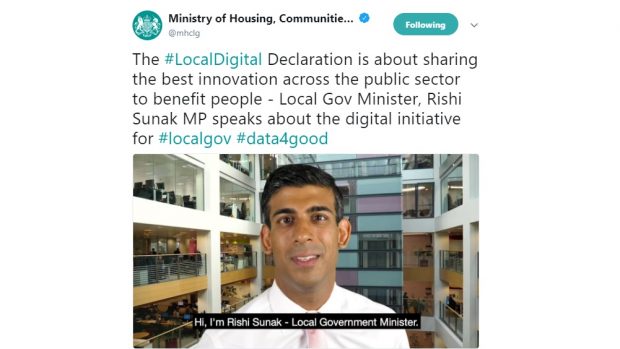
3. Get everyone behind a collective aspiration
In the past, attempts to fund Local Digital missions have been stifled because it’s been hard to articulate a plan that everyone agrees with. It’s also risky to invest in things we don’t properly understand when budgets are tight and citizens are relying on us to keep the lights on.
The intention of a commonly endorsed Local Digital Declaration is to help bring techies and non-techies onto the same page, helping them to understand what needs to happen and why.
Ultimately, we’re all aspiring for the same end: wonderful, inclusive and cost-effective public services. By publicly signing up to a common mission statement, we believe we can rally more support.
4. We need opportunities for physical and virtual collaboration
Our programme will host a bi-annual roadshow to help showcase common projects as they develop. If you have a big space that could host the next one in January-February 2019, get in touch.
We’ll also build a tool to help all the meet-up groups and organisations already collaborating to promote their events. More on this when we’ve finished hiring the people to develop it.
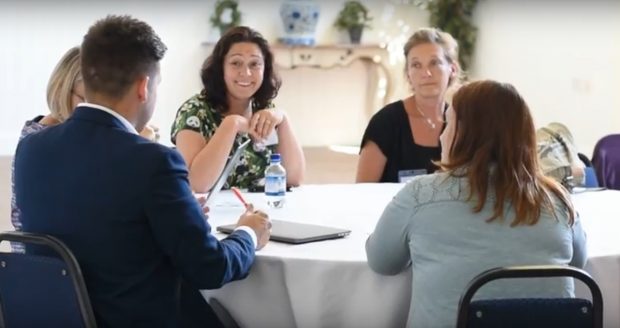
What we’re doing to deliver
Because this blog post is getting far too long, I’ll list some early plans and resolve to update you with more soon:
- We’re hiring: Check out the jobs we’re advertising on our diversity-loving, egalitarian and passionate team here.
- We’re building a Declaration sign-up service in the next website design sprint. We’ll tell you when it’s ready using this mailing list, and on a blog.
- You might have heard, our Minister has created a fund to support this agenda. This means we’ll spend the summer designing a fund that delivers common solutions to common problems. We’ll announce opportunities to influence this (2 of which are in next paragraph) over the summer, and try to open up a competition in the Autumn.
- We’ve got 2 more web development sprints this summer to lay starter foundations for our wiki platform.
- And while we’ll use most of our summer time working on the fund and recruiting Declaration commitments, we’ll also be thinking about which exemplars we deliver from 2019 onwards.
Feed into our plans at events on 12 and 16 July
Our last of 5 events in a series of kick-off roadshows is on Thursday in Leeds. We still have space, so register if you can make it at short notice! We’ll be running sessions on fund design and building our wiki platform of platforms. If you can’t be there, my awesome colleague, Egle, will share some roadshow findings in our next blog.
We’ll also be at OneTeamGov Global on 16 July in London, asking attendees to help us design a fund that does what the sector needs. If you’ve got a place, look out for that session!
For now, however, our big message is that we need to ‘fix the plumbing’. How are we going to do that? We’re going to wiki-fix it. Consider yourselves hired.
Follow @LindaSasta on Twitter and subscribe to the MHCLG Digital blog to keep updated.
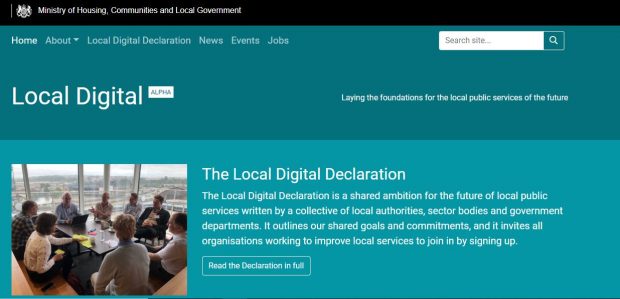

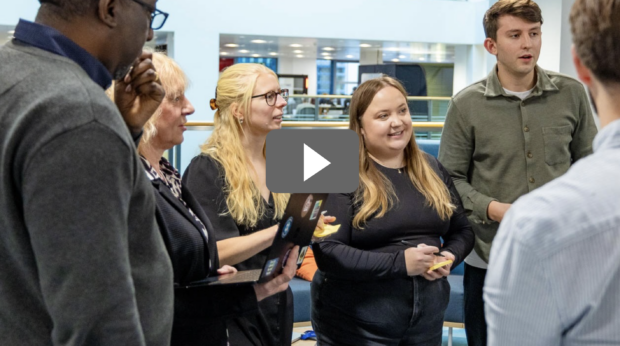

2 comments
Comment by joe bedingfield posted on
Hi, We have a modern civic suite that can house up to 120 people for one of your future roadshow events. The room can be divided into two and has brand new projectors along with the option of a number of portable TV screens that can be moved around as required. We are looking forward to signing the Digital Deceleration as a tri council partnership (Huntingdonshire, Cambridge City and South Cambridgeshire councils) and our Portfolio holders, senior officers and shared Digital Team are all on board.
Comment by Egle Uzkuraityte posted on
Thanks for that Joe that sounds great. We'll be in touch soon to find out more.
Also great to hear you're on board for signing up, the form will be ready very soon so watch this space.